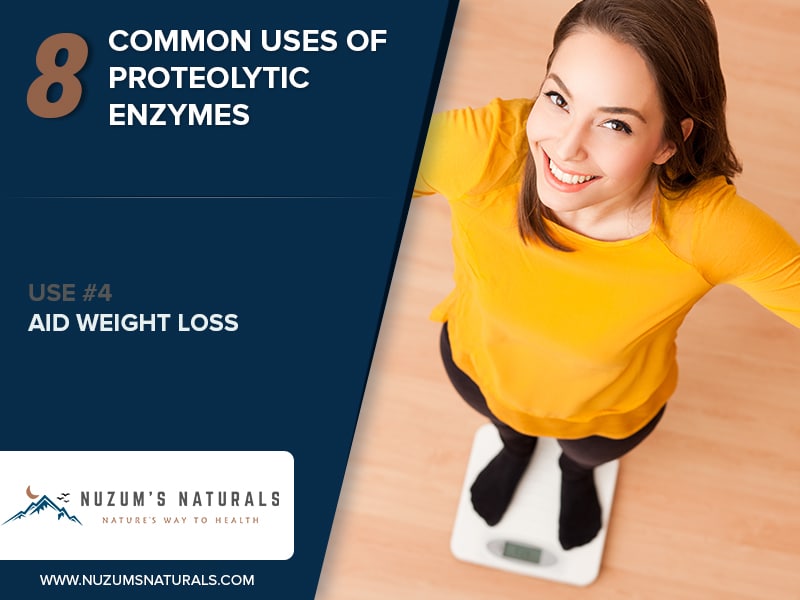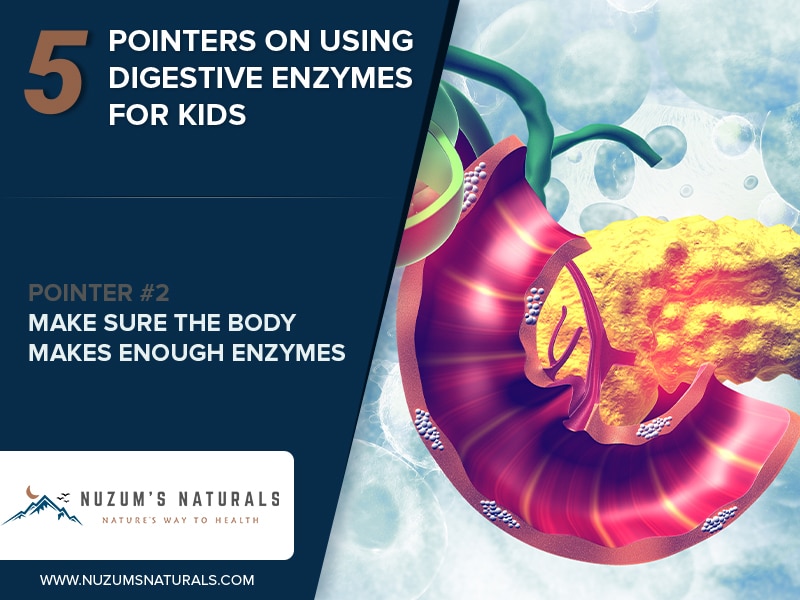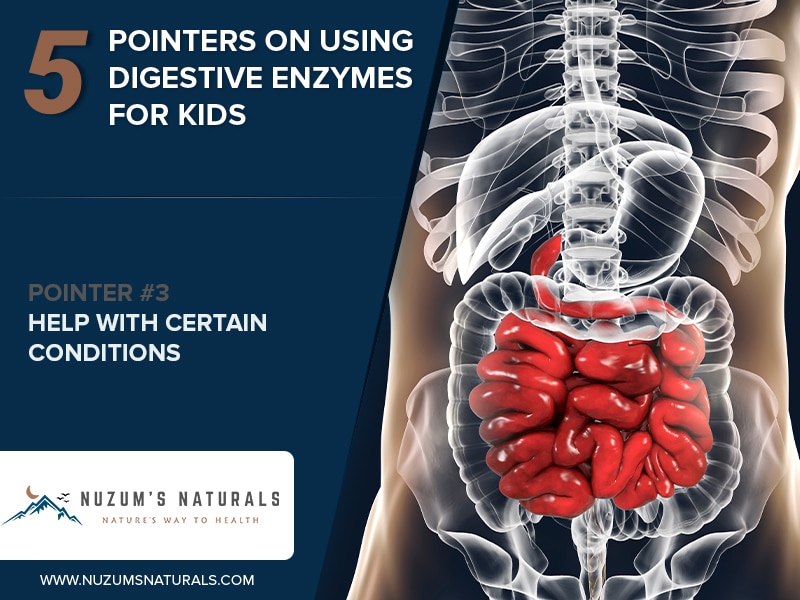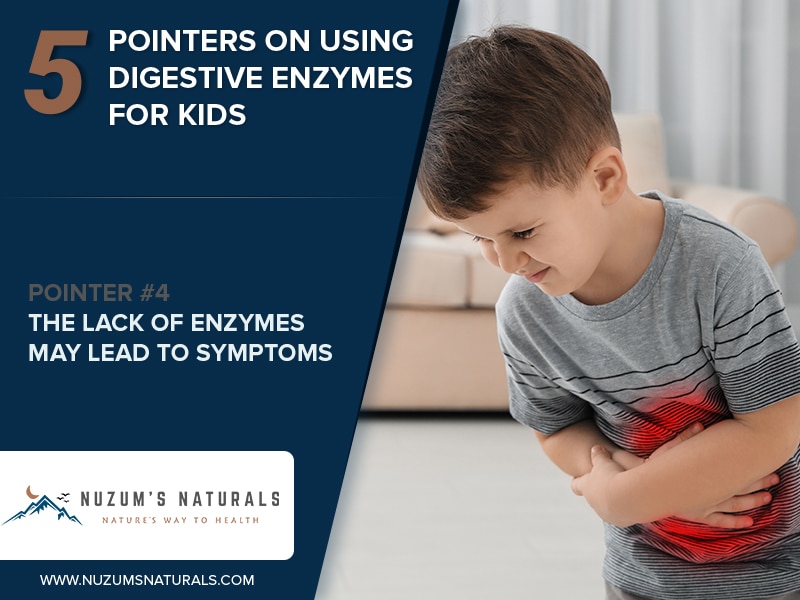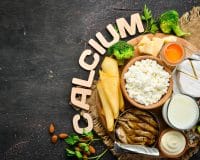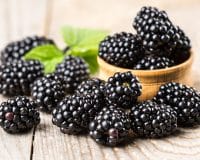8 Enzyme-Rich Foods For A Healthy Digestive System
Do you have a hard time digesting food, or do you often experience indigestion? The chances are that your digestive system is not producing enough enzymes. In this article, we will discuss eight foods high in digestive enzymes to help improve the health of your gut and keep it running smoothly.
The first foods high in enzymes you will learn about are papaya and pineapple. Next, we will teach you about the enzymes in kefir. Then, we will discuss apple, grapefruit, the herb ginger, and banana and wrap up with fermented food. Once you have finished reading, you will be able to add these high-enzyme foods to your diet to promote digestive health.
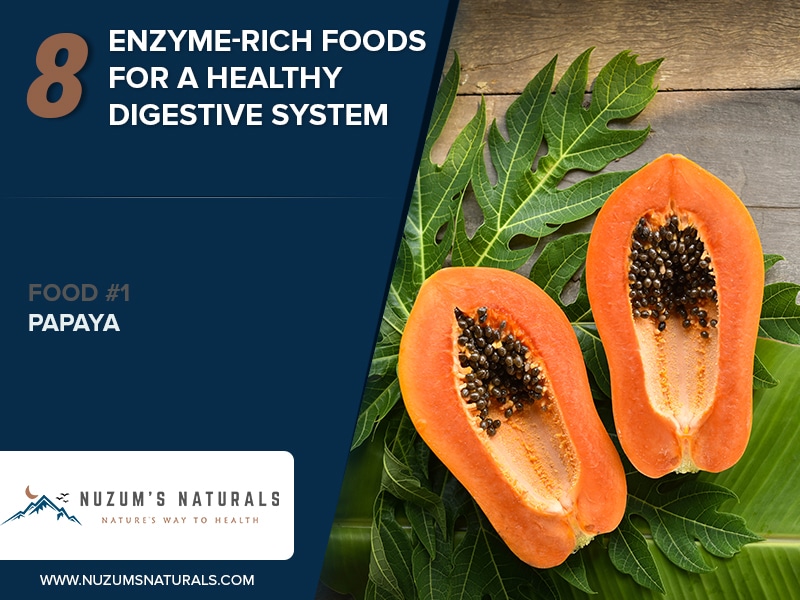
1Papaya
This tropical fruit is a rich source of papain, an enzyme that helps break down proteins. Papaya also contains other digestive enzymes, such as chymopapain and glycosidases, making it an excellent choice for improving digestion. Papaya is also an excellent source of vitamin C, an antioxidant that plays a role in digestion. Papaya is an amazing source of protein and fiber.
Papaya can be consumed fresh or dried and works well in salads and smoothies. Papain supplements are also available if you want to increase your enzyme intake quickly. This tropical fruit contains enzymes that help break down proteins and other digestive enzymes, such as chymopapain and glycosidases, making it excellent for improving digestion; it is rich in papain, which helps break down proteins, and works great with salad and smoothies because it’s full of vitamin C and antioxidants. It also has papain found in the seeds, which have been shown to help with digestion.
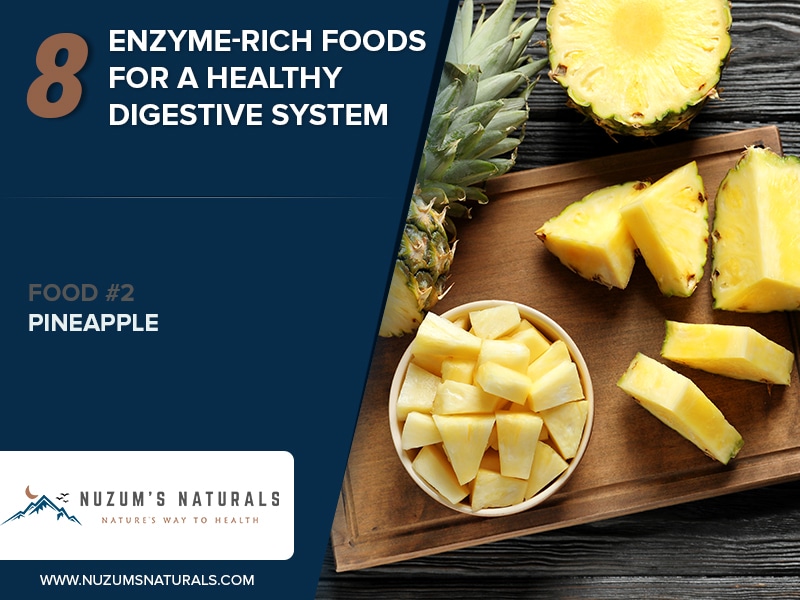
2Pineapple
Pineapple is another fruit that is high in digestive enzymes. The main enzyme in pineapple is bromelain, which helps break down proteins. Bromelain also has anti-inflammatory properties, making it beneficial for gut health. Pineapple is a good source of vitamin C and manganese, both of which are important for digestion.
Like papaya, pineapple can be consumed fresh or dried and works well in smoothies and salads. If you are looking to increase your intake of digestive enzymes quickly, you can also take bromelain supplements. This tropical fruit contains an enzyme called bromelain, which helps break down protein as well as possesses anti-inflammatory abilities, making it great for gut health!
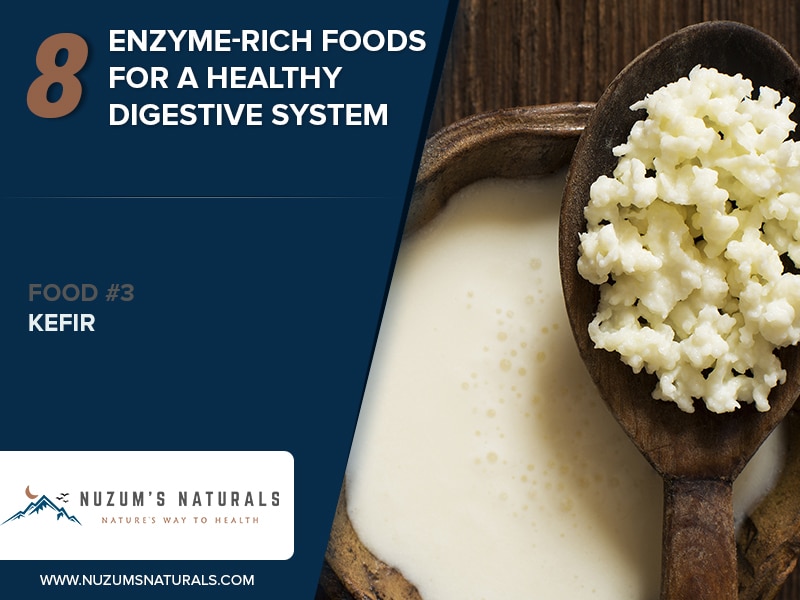
3Kefir
This tangy, fermented dairy product contains a variety of enzymes that help break down proteins. Kefir is also rich in probiotics, which are healthy bacteria that support digestive health. For these reasons, kefir can be beneficial for improving digestion and assimilation of nutrients from food.
Kefir can have anywhere between 500 million to 50 billion live active cultures per cup! If you do not tolerate lactose well or are allergic to milk products, there are many different types of non-dairy kefirs available as an alternative source of enzymes plus probiotics. This drink has been shown to improve gut function & overall well-being. Coconut milk kefir cultured almond is a non-dairy alternative.
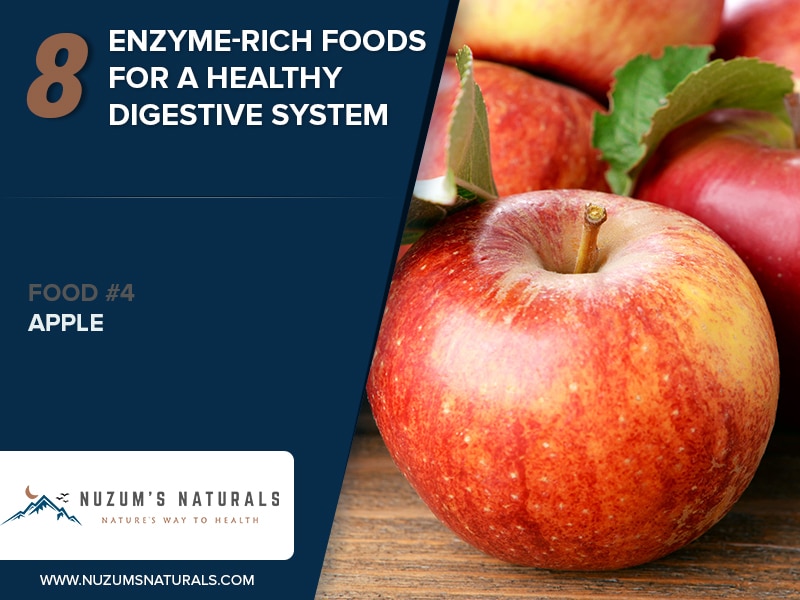
4Apple
Apples contain pectin and fiber, which help support healthy gut flora. Apples also have a high concentration of polyphenols (plant-based antioxidants), which can improve digestion by reducing inflammation and protecting the cells against free radical damage. Polyphenols are found mainly in apple peels; therefore, it’s best to choose organic varieties whenever possible since conventional apples tend to be heavily sprayed with pesticides.
This fruit is not only great for keeping your digestive system running smoothly but will also provide you with its antioxidant benefits! Apple peels even contain polyphenol, which is a plant-based antioxidant that helps reduce inflammation in the gut as well as damage from free radicals. Non-organic apples may have residues of pesticides on them. It’s important to know this so you can be cautious when eating them and try to get organic where you can!
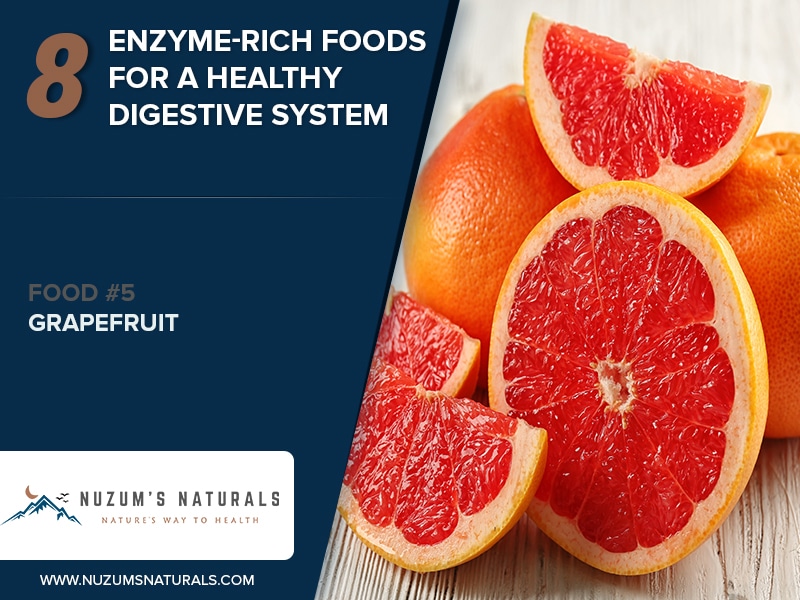
5Grapefruit
Grapefruit is rich in antioxidants and contains limonoids, which prevent certain enzymes from breaking down food. Because of this, grapefruit helps you absorb more nutrients from your meals when consumed before a meal. It can also help improve digestion by stimulating the flow of bile salts into the small intestine to aid with fat breakdown and absorption, leading to improved bowel movements, too!
This citrus fruit offers many benefits in terms of health & well-being. This is due to its antioxidant properties that prevent some digestive enzymes, such as lipase, from working properly, improving nutrient assimilation during digestion, preventing constipation, etc. Eating organic grapefruit ensures that it does not have residues of pesticides on them.
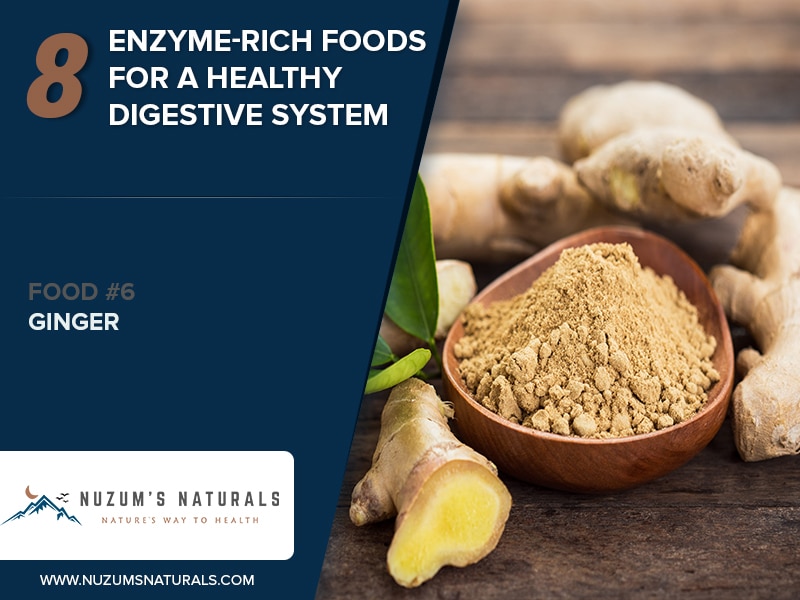
6Ginger
Ginger is a well-known herb for its anti-inflammatory properties and contains zingibain. It can also help improve digestion by stimulating the production of digestive enzymes and promoting healthy gut flora. Additionally, ginger helps relieve nausea and vomiting, which can often occur when someone is struggling with digestive issues.
This root vegetable helps aid digestion via multiple methods. It has anti-inflammatory abilities and supports enzyme production as well as good gut bacteria, making it a splendid choice for those who experience nausea or vomiting, along with their digestive problems! Ginger comes in many forms, such as tea, supplement, or fresh (which you can find at most grocery stores).
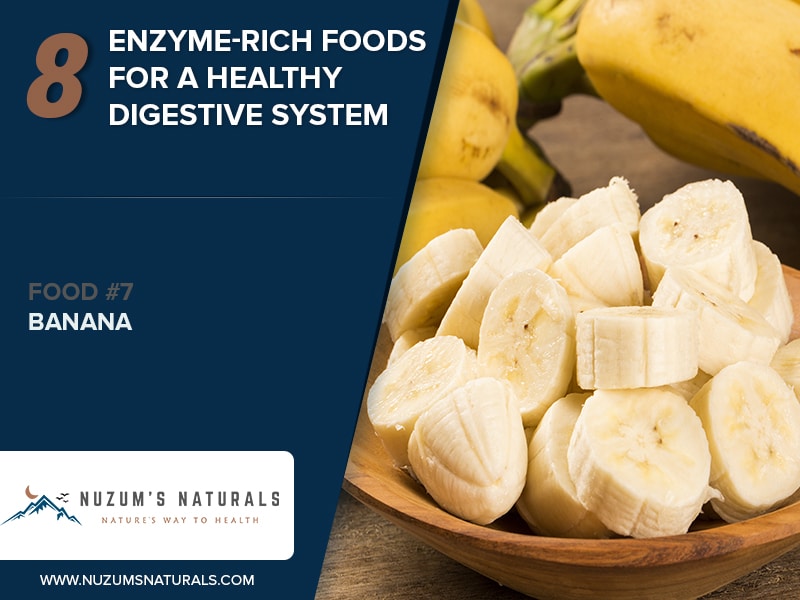
7Banana
Bananas are a wonderful source of dietary fiber, which helps keep the digestive system regular. They also contain potassium, vitamin C, and B complex vitamins – all of which are important for optimal digestion. Additionally, bananas can help soothe an upset stomach due to their high concentration of pectin.
This fruit is amazing because it contains soluble and insoluble fibers that work together to regulate bowel movements! Bananas are also packed with other nutrients such as potassium, vitamin C, and B complex vitamins. Those are all essential for good digestion!
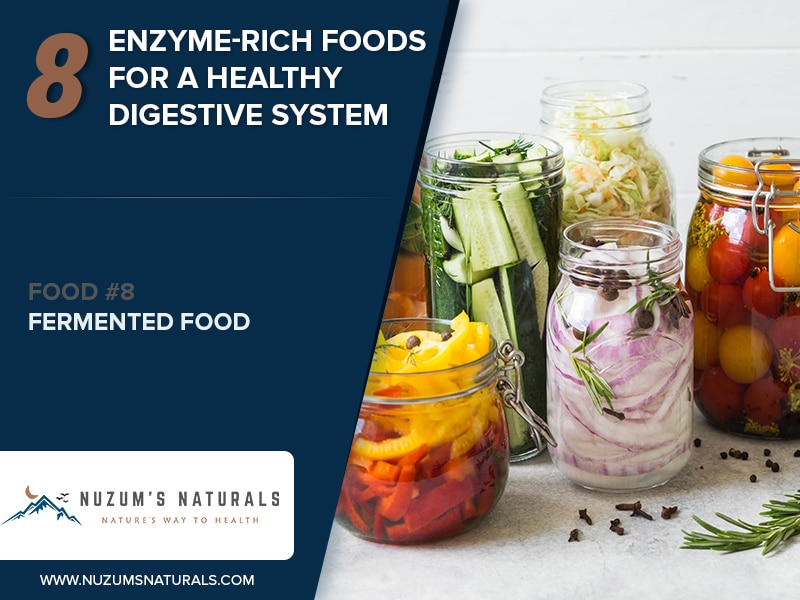
8Fermented Food
Eating fermented foods is an effective way to promote digestive health. They contain probiotics that are beneficial bacteria that help maintain a healthy balance of gut flora. Fermented foods are high in enzymes, which help the body digest food properly.
This category of foods provides many benefits when it comes to digestion due to its probiotic content as well as enzyme levels. Probiotics work to keep bad bacteria at bay, while enzymes assist in breaking down food so your intestines can easily absorb all the nutrients. Some wonderful examples of fermented foods include sauerkraut, kimchi, yogurt, and kefir.
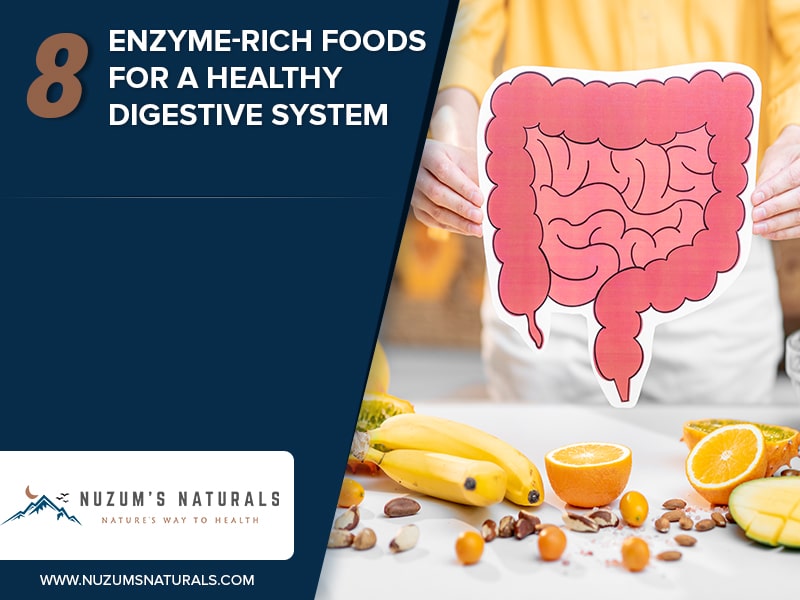
Do you have trouble digesting meals, or do you get indigestion frequently? Your digestive system isn’t producing enough enzymes. We looked at eight foods high in digestive enzymes in this article to help your gut stay healthy and operate efficiently.
The foods high in enzymes you learned about are papaya and pineapple. Next, we taught you about the enzymes in kefir. Then, we discussed apple, grapefruit, the herb ginger, and banana and wrapped up with fermented food. Now that you have finished reading, you will be able to add these high-enzyme foods to your diet to promote digestive health.






